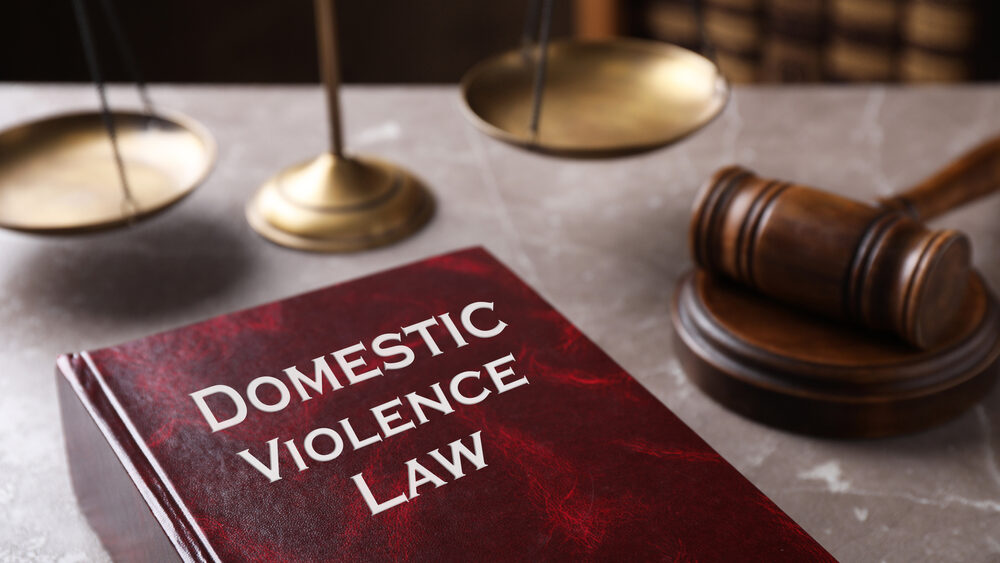Domestic Violence Charges in New Jersey: Legal Rights and Protection Orders

Domestic violence is a pervasive issue that affects countless individuals and families across the United States, including New Jersey. The legal system takes domestic violence cases seriously, aiming to protect the rights and safety of those involved. In this comprehensive guide, we will explore the complexities of domestic violence cases in New Jersey, focusing on the legal rights and protection orders available to both victims and the accused. We will also look at case examples to showcase defense outcomes and provide valuable insights for those navigating the intricate legal landscape.
Complexities of Domestic Violence Cases
Domestic violence cases are inherently complex, characterized by the intimate relationships and emotions involved. These cases can take many forms, encompassing physical, emotional, psychological, and financial abuse. Understanding domestic violence charges in New Jersey requires a comprehensive grasp of the legal framework and the specific laws governing such cases.
Legal Definitions and Protections
Who Qualifies as a Victim?
New Jersey has strict laws in place to address domestic violence, and the legal system provides a range of protections for victims. In domestic violence cases, the term “victim” typically refers to the person who has been subjected to abuse, harassment, or threats within an intimate relationship, including spouses, former spouses, dating partners, and family members. Victims have legal rights and can seek protection through the courts, including obtaining restraining orders.
Rights of the Accused
At the same time, the accused, or the alleged perpetrator, also has rights and legal protections. It’s important to remember that accusations of domestic violence can have severe consequences, both legally and socially. Individuals accused of domestic violence face potential criminal charges, restraining orders, and damage to their reputation. This guide will explore the legal rights and defense options available to individuals accused of domestic violence in New Jersey.
Understanding Domestic Violence Charges
Types of Domestic Violence Offenses
Domestic violence charges in New Jersey encompass a wide range of behaviors that cause harm or fear in an intimate relationship. The state’s domestic violence laws are designed to protect victims and hold perpetrators accountable. These laws define various offenses, including:
- Assault and Threats: Assault can range from simple assault, which involves causing or attempting to cause bodily harm, to aggravated assault, which involves more severe harm or the use of a deadly weapon. Threats of violence, including credible threats, are also considered domestic violence offenses.
- Harassment: Harassment can include any alarming or annoying behavior that causes emotional distress for the victim. This can encompass stalking, cyberbullying, and repeated unwanted contact.
- Trespassing and Criminal Mischief: Entering or remaining in the victim’s home without permission and causing damage or destruction of property can lead to domestic violence charges.
- Violation of Restraining Orders: Violating a restraining order is a serious offense that can result in criminal charges.
Potential Consequences
The potential consequences of domestic violence charges in New Jersey are significant and can vary depending on the specific circumstances of each case. They may include:
- Criminal charges and penalties, including fines, probation, and imprisonment.
- Mandatory counseling or anger management classes.
- Loss of child custody or visitation rights.
- A tarnished reputation, which can impact personal and professional life.
- A restraining order, also known as a protection order, limits contact with the victim and can lead to arrest if violated.
Legal Rights and Defense Options for Individuals Accused of Domestic Violence
If you find yourself accused of domestic violence in New Jersey, it is essential to understand your legal rights and explore potential defense options. The presumption of innocence is a fundamental legal principle, and you have the right to defend yourself against the charges. Here are some key legal rights and defense strategies to consider:
- Right to Legal Representation: You have the right to legal representation, and it is strongly advised to consult with an experienced criminal defense attorney who specializes in domestic violence cases. Law firms like Lombardi & Lombardi have a deep understanding of the intricacies of New Jersey’s domestic violence laws and can provide you with expert guidance.
- Building a Strong Defense: Your attorney will work with you to build a strong defense. This may involve investigating the evidence, interviewing witnesses, and identifying any inconsistencies in the victim’s statements.
- Exercising Your Right to Remain Silent: It’s important to remember that you have the right to remain silent and not incriminate yourself. Anything you say to law enforcement can be used against you in court.
- Exploring Alternatives to Incarceration: Depending on the circumstances, your attorney may explore alternatives to incarceration, such as counseling, anger management classes, or community service.
- Contesting Restraining Orders: If a restraining order has been issued against you, your attorney can help you contest it in court, providing evidence that the order is not warranted or that it is based on false allegations.
Hypothetical Case Scenarios Demonstrating Effective Defense Strategies
To offer a more tangible understanding of how domestic violence charges can be defended in New Jersey, let’s delve into several hypothetical case scenarios. These examples are designed to showcase how skilled legal representation can significantly impact the outcome of domestic violence cases:
Scenario 1: Allegations of False Accusation
Imagine a scenario where a client is wrongfully accused of domestic violence by their ex-spouse. In this fictional case, the accuser has a pattern of making unfounded claims to gain leverage in a child custody battle. Our legal team would gather evidence, including fabricated text messages and invented witness accounts, to demonstrate the falseness of these allegations. In this scenario, the charges are dismissed, safeguarding the client’s reputation.
Scenario 2: Claim of Self-Defense
In this hypothetical case, a client faces domestic violence charges after allegedly defending themselves against an aggressive partner. The defense presents an argument that the accused acted in self-defense, supported by contrived evidence. In this outcome, the court sides with the client, leading to an acquittal.
Scenario 3: Accusation of Violating a Restraining Order
In another imagined scenario, a client is charged with breaching a restraining order. The defense team in this case argues that the order was not correctly served and that the client was unaware of its existence. As a result, in this hypothetical situation, the charges are dismissed.
These fictional examples are meant to underscore the significance of seeking advice from well-versed attorneys when confronted with domestic violence charges. A proficient legal team, as illustrated in these scenarios, can guide you through the complexities of the legal system and work to protect your rights.
Process of Obtaining and Enforcing Protection Orders in NJ
Protection orders, commonly known as restraining orders, play a crucial role in safeguarding the victims of domestic violence. In New Jersey, restraining orders are issued by the court and can contain various provisions to protect the victim. The process of obtaining and enforcing protection orders involves several key steps:
Filing a Complaint
The victim must file a complaint with the court, requesting a restraining order. The complaint should detail the incidents of domestic violence and the need for protection.
Temporary Restraining Order (TRO)
Upon receiving the complaint, the court may issue a Temporary Restraining Order (TRO) if it believes that the victim is in immediate danger. A TRO provides immediate protection until a final restraining order hearing can be held.
Final Restraining Order (FRO) Hearing
Within a specified timeframe, typically within 10 days, a final restraining order hearing is conducted. At this hearing, both parties can present evidence and witnesses. The court will determine whether a final restraining order is necessary.
Enforcement of the Restraining Order
Once a final restraining order is issued, it is crucial to understand its provisions and adhere to them. Violating a restraining order can lead to serious consequences, including criminal charges.
Modification or Dissolution
Either party can seek a modification or dissolution of the restraining order by filing a motion with the court. The court will review the request and make a determination based on the circumstances.
Ongoing Legal Support
Legal counsel is crucial for both parties involved in domestic violence cases. Victims should have an attorney to guide them through the process of obtaining and enforcing protection orders, while the accused should consult with an attorney to protect their rights and challenge unwarranted orders.
Contact an Experienced Domestic Violence Lawyer at Lombardi & Lombardi for a Free Consultation About Your Case Today
At Lombardi & Lombardi, we understand the complexities and sensitivities surrounding domestic violence cases in New Jersey. With a legacy of legal excellence and a deep commitment to protecting the rights of all parties involved, our experienced team stands ready to provide you with expert legal representation.
Whether you are a victim seeking protection through restraining orders or an accused individual in need of a strong legal defense, we are here to guide you through the legal process. Our goal is simple: to ensure that justice is served while respecting the well-being of every individual affected by domestic violence.
Contact us today for a free consultation. Let Lombardi & Lombardi be your advocates, your allies, and your voice in the face of legal challenges. Trust in our experience, dedication, and unwavering commitment to safeguarding your rights.






 CALL NOW
CALL NOW